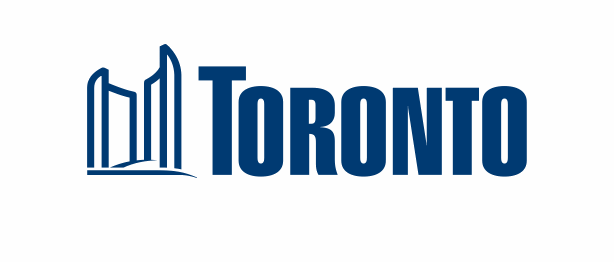
Background
Toronto (pop. 2,791,140) is Canada’s largest city and one of North America’s most culturally distinctive cities. As such, it comes as no surprise that Toronto is home to the most diverse, wide-ranging curbside recycling program in all of Canada.
Collecting and managing recyclables in North America’s fourth-largest city is no simple task, but Torontonians are given lots of choices when making eco-conscious decisions.
Recyclables are collected at the curb in single-stream blue rolling bins, of which each household may choose the appropriate size (small, medium, large and extra large bins are available). What takes Toronto’s curbside program to the next level is the ability to recycle electronics, large metal objects and appliances right at the curb, along with typically rejected items like plastic bags, hardcover books, plastic clamshell containers and more.
Materials recycled
Paper
Accepted items include newspapers, flyers, phonebooks, magazines, catalogs, soft and hardcover books (remove plastic covers, liners and over-wrap and put in garbage), milk/juice cartons and boxes (plastic tops and straws go in the garbage), cardboard cans (e.g., frozen juice, refrigerated dough, chips, nuts, powdered drink mix; plastic pull-off strips go in garbage; place metal ends inside cardboard can and pinch closed), paper bags, paper rolls, junk mail, writing/computer paper, envelopes, gift wrap, cards (no ribbons, bows or foil wrap), paper board (flattened; remove liners and plastic windows and put in garbage), corrugated cardboard (clean, unwaxed and flattened; pizza boxes must be empty; remove plastic over-wrap from pop/water cases and put in garbage) and shredded paper (secured in a clear plastic bag).
Plastics
Clamshell containers (hinged, clear plastic containers used for food items such as berries and take-out), clear fruit and vegetable containers, clear molded bakery item trays, egg cartons, disposable plastic plates and glasses, cold beverage cups and lids, plastic bottles and jugs (lids OK), plastic food jars, plastic tubs and lids, plastic bottles (lids and sprayers screwed on tight), plastic kitty litter tubs with plastic handles, plastic laundry detergent tubs and lids, clear compact disc cases (empty), foam food and protective packaging (e.g. drinking cups, egg cartons, meat trays, takeout food containers, electronics packaging) and plastic grocery and retail shopping bags without drawstrings, metal detailing or hard plastic handles (place all plastic bags in one retail or grocery plastic bag and tie handles together) can all be placed in the blue bin. Make sure all items are clean.
Metals
Accepted items include aluminum cans, tin/steel cans (metal lids may be placed inside tin cans with cans pinched shut), aluminum trays, burner liners, pie plates and roasting pans, aerosol cans (empty; put caps in garbage) and metal paint cans and lids (empty, separate lids from cans)
Large metal items and appliances
Appliances, barbecues, furnaces, water heaters, metal bathtubs, bicycles, storage sheds and other large metal items can be collected right at the curb (no appointment necessary). Remove any appliance doors and place next to appliance. Any nonmetal parts (e.g., bicycle seats and tires) should be removed and placed in the garbage bin.
Glass
Glass bottles and containers (all colors; rinsed; no lids) are accepted.
Electronics
Certain types of electronics may be placed at the curb for convenient recycling (usually collected on refuse pick-up day). Accepted items include cell phones and home phones, computer cables and accessories, laptops, keyboards, VCR/DVD players, tablets, pagers, radios, cameras, video recorders, TVs, desktop computers and monitors, printers and scanners, copiers, typewriters, fax machines, stereos, tuners and turntables, receivers and speakers. Items can be placed in designated e-waste bags or in open-top cardboard boxes.
Frequency
Toronto residents take recyclables to the curb on a biweekly basis, same day as organics/yard waste collection. Depending on the location, recycling could be collected during the day or in the evening. Consult the citywide collection schedule, which is available
online.
Other programs
Organics are collected at the curb on a weekly basis to be turned into compost. The green rolling bin accepts meat, poultry and fish products; pasta, bread, cereals and rice; dairy products, eggs and shells; coffee grounds, coffee filters and tea bags; cake, cookies and candy; diapers, sanitary products, animal waste, bedding and cat litter; house plants, including soil; soiled paper; food packaging, ice cream containers, popcorn, flour and sugar bags; tissues, napkins and paper towels (these must not be soiled with chemicals or cleaning products).
Yard waste (leaves, grass clippings, small twigs, trimmings, brush, soil) is collected biweekly at the curb from mid-March to December each year. Yard waste can be put in paper yard waste bags or reusable plastic containers. Twigs and branches may be bundled by themselves with twine or string.
Household hazardous waste (items that are corrosive, flammable, explosive and/or poisonous) items can be taken to designated drop-off depots across Toronto. These locations also accept e-waste, yard waste, refuse and select blue bin recyclables. All locations are open Tuesday through Friday, from 10 a.m. to 6 p.m., and Saturday, from 7 a.m. to 12:30 p.m. For further information on accepted items, visit the
Toronto drop-off depot website.
• 188 Bermondsey Rd.
• 400 Commissioners St.
• 120 Disco Rd.
• 50 Ingram Dr.
• 1 Transfer Pl.
• 3350 Victoria Park Ave.
More information
Visit the
City of Toronto Garbage & Recycling website for more recycling program information.
